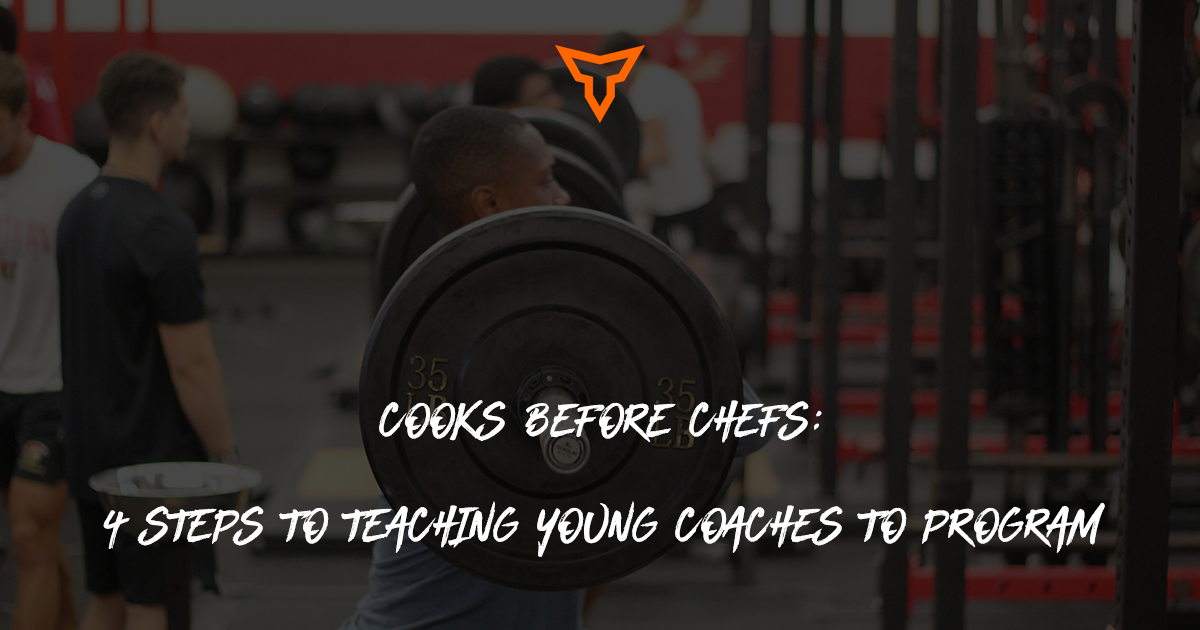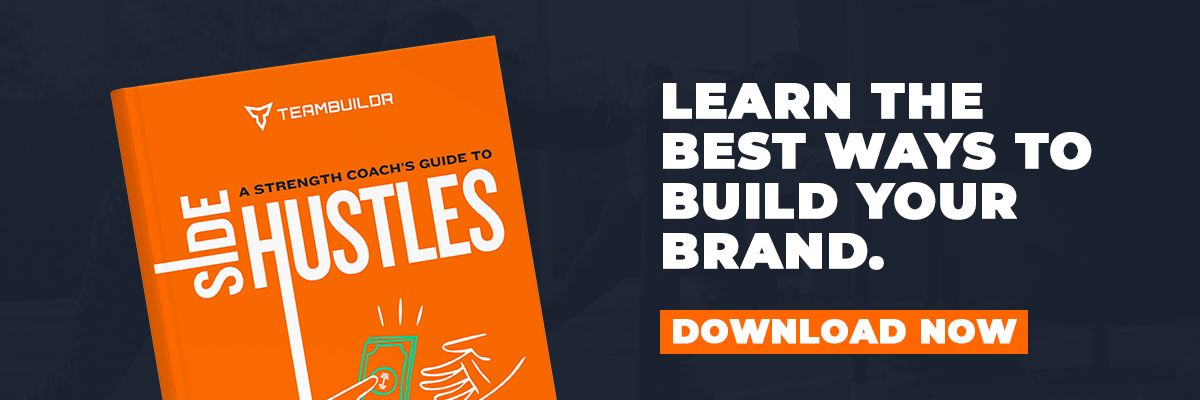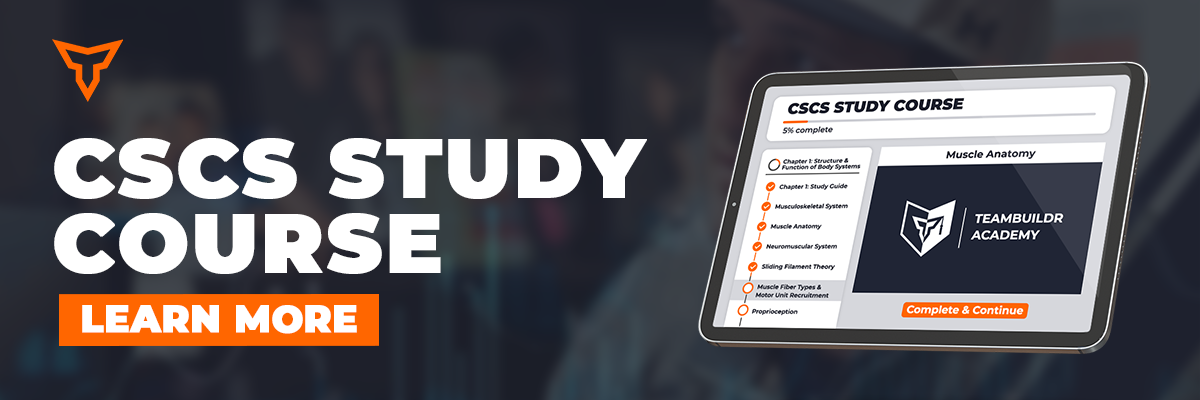From the Director's Desk: 10 Tips to Crush Your Next Interview
As a director and business owner, my duties include reviewing, interviewing and processing candidate applications for positions within Iron Performance Center. While every applicant is unique, I’ve seen trends (both positive and negative) in how candidates typically handle the interview process.
Finding the right fit on both ends can always be a challenge, but being properly prepared with some common sense, thought provoking questions can help both parties identify if they’d be suitable for the job. In this article, I list some do’s, don’ts, and tips that I personally feel would make a difference in standing out from the pack. Candidates, if you’re reading this, take some serious notes.
1. Do Your Research
This should be an obvious one but you’d be surprised as to how many candidates have absolutely no idea about what we do or even who we are as a staff. We usually ask this question in the beginning to set the tone of what’s to come. If a candidate hasn’t even made the effort to browse our website or read a little about who we are as a staff, it doesn’t leave a good impression. It makes it look like you just threw an application into the universe. Even if this was the case, a simple Google search with a few specifics can make you stand out.
2. Know Your Strengths & Weaknesses
To be honest, I truly don’t give a damn about the details of this question, BUT I care enough about an honest answer and the ability for one to be self-aware (and humble) to admit what they feel they need to work on. Furthermore, it is one of the most commonly asked questions of any interview; if you can’t force a simple answer, it’s a no from me. If you know the problems we’re trying to solve, maybe sprinkle in your strong suits as to how you can help.
3. How Can You Make Our Life Easier?
At the end of the day, we’re hiring someone to make our life easier. As a candidate, think of ways you could potentially solve our problems. Don’t know? That would be a great question to ask at the end. If a candidate asked me “what’s one problem you are looking to solve as an organization right now?” I'd be blown away. To have forward thinking tendencies can really make candidates stand out. If you do your research right, you may already know what problems we’re looking to solve and you could sprinkle your solutions in during the question-answer period.
4. Know WHY We Should Hire You
A question I ask is “why hire you over other applicants?”. I really pay attention to this question for a couple reasons. First, it lets me know what they value about the industry. Second, it can further reaffirm or red-flag humility.
If a candidate says they know how to program, periodize or coach exercises, I just roll my eyes. So what? Everyone can figure that out. I think the years of coaching experience needed to get an interview would suggest candidates know how to do that shit. I’m looking for some intangibles. Maybe you’re great at connecting with youth athletes or maybe you are flexible and love a challenge. If a candidate told me that they love growth and want to prove they can handle extra responsibilities, I think I’d fist pump during the question. While it’s an opportunity to be your own advocate, think of unique aspects that are intangible.
5. Actually Be Interested in The Position
I like to ask “why do you wish to work at IPC?”. The amount of blank faces I’ve seen is just frustrating. If you apply for a position, something must’ve interested you to apply. If it was just the money, keep that to yourself. I recommend brainstorming some factors that differentiate the position from other places. Even if it’s the same job, maybe the facilities or atmospheres are different. Maybe you read our staff bios and are interested in working alongside us. Perhaps you saw our athlete testimonials and wish to experience the culture. There are numerous small factors that can demonstrate a genuine interest in the applied workspace. As a director, I want to know the candidate cares; having some unique reasons for your application can do wonders.
6. Relate Other Work Experience
I love hearing about candidates' other work experiences besides just strength and conditioning. Believe it or not, having other work experiences can demonstrate other intangible qualities that can prove useful to the role. Perhaps you put on seminars or clinics and gained valuable organization skills. Maybe you were in charge of equipment or facility maintenance and learned about operational flow and cleanliness standards. Perhaps you were a manager at the local box gym and gained skills in overseeing staff and back-end work.
Every candidate that applies to our positions I assume would be decent at the programming side of things. I want the soft skills to come to the forefront; being able to connect with people is a big part of our industry. I look at it this way: it would take less time for my staff to teach a new staff member our way of programming than it would to teach them the soft skills to connect with our community.
7. Know How to Talk Money
Financially, we make sure our positions are advertised as transparent as possible to prevent misleading any candidates. I understand talking about financials and value when it comes to what a candidate feels they are worth. As a director, I appreciate objective measures when it comes to how someone communicates what they feel they are worth.
It bugs the s*** out of me when I ask a candidate about their salary expectations and they jump straight to the top end with no justification. If you feel you are worth the top range, ok, no problem, tell me why. What I am actually saying is: quantify for me what value you’d bring to our organization that would either solve our problems or save us time trying to figure it out ourselves. You saying how you have a Masters Degree doesn’t impress me. Telling me you can program and periodize better than everyone else means jack to me. Do you possess a unique set of skills that we could use? Do you have a roster of athletes or clients that would pay to work with you directly? In other words, does anyone else value you how you value yourself as a professional? If you can’t answer that question or have no answer that is objective in nature, it just rubs me as ignorant. Just because I feel my house is worth a million bucks doesn’t mean the market here is paying me for it. The market dictates your value so be sure you can present yourself as an asset worth investing in.
8. Pass The Eye Test
Look, I’m not saying you gotta be ripped or built or anything like that. However, as much as it may pain some folks to hear, there is an eye test to the industry. A big indicator of passion for this job is actively making some time each week to do some exercise yourself. Being in somewhat decent shape shows me that you are actually practicing your craft. It can also help when it comes to building buy-in to your training process. People respect someone who walks the walk and are more inclined to listen to them. Be that person, it can only help.
9. Talk About Community Involvement
Candidates need to remember that although we care about sets and reps, we are a relationship business first. I like when candidates segway previous work experience to how they became connected to their community. A big part of what we do is community relations and it’s imperative that future staff understand the role they play in that. Attending games, going to fundraisers or just being present for our people is one of the more important aspects of our jobs. Having a candidate already out in the community and actively engaging with members of the public is a huge advantage in my opinion. I’d be eager to bring it up if I were applying.
10. Remember The 3 P’s
While it may seem like common sense, it would be wise for candidates to practice the 3 P’s when heading to an interview.
Punctual-Presentable-Positive
Candidates, I cannot stress this enough. Be punctual for your interview. We notice. 5 minutes early should be the minimum but I can appreciate someone who’s 10 minutes or so ahead of schedule. To me, it relays a message that the person cares enough to be as prepared as possible. If anyone is exactly on time or (worse) late, it’s a done deal. If you HAVE to be late (say unforeseen circumstances), pickup the phone and CALL immediately when you find out. While it may not save the impression, having someone call as quickly as possible can’t hurt the odds. If nothing else, it could demonstrate communication abilities during a crisis.
When I say be presentable, dress for the job you want. I’m not saying a suit and tie are necessary, but a nice athletic shirt and a pair of khakis can go a long way. Being presentable shows me that some effort was made to make a good impression. I’ve seen candidates come in with whatever faded tee and sweats they grabbed from the basket that morning that passed the smell test. Let me tell you, we notice your appearance. Dress appropriately.
If you learn nothing else from this article, understand this: under no circumstances should you display a negative attitude. I don’t care if your car broke down, your dog ran away or your spouse left. You get one shot to make an impression. Airing your dirty laundry, talking negatively about other workplaces or making excuses for whatever reason are an automatic no from me. I understand we all have life going on, but there’s a time and place. Our interview is not the place.
When you enter the facility, make sure you smile and shake my hand firmly. I notice when people take a more energetic tone in their voice, believe it or not I find it helps set a good tone to kick things off. When we start the interview process, find ways to find the positive in your answers. Even when discussing weak points or other workplaces, I can appreciate a candidate’s ability to find the upside to every situation. I believe it reflects a growth and solutions mindset, when chaos ensues, they’re probably the person you can count on to find the next course of action.
When I hear a candidate turn negative, I automatically think this person isn’t able to stay present, take responsibility or handle their own business. To me, it represents what may come in future should they be allowed to become part of the staff. We are a solutions driven group, we don’t need excuse-dependent people.
Other Notables
I notice (and appreciate) that many strong candidates ask good questions throughout the interview. To me, it demonstrates their presence throughout the conversation; it’s like a tennis match going back and forth with each reply allowing both parties to learn more about each other. Essentially, it comes down to active listening and a display of excellent communication. Both are qualities that I as a director appreciate.
For example, a great question one candidate asked was: “what is the number one challenge the organization is looking to accomplish currently?”. I loved the intuitiveness this candidate displayed as it allowed our interviewers to elaborate on what we’re all working on at the moment. The candidate then tied in how they could be a valuable addition by relaying previous experience and skill work.
I also appreciate a candidate who looks for feedback at the conclusion of the interview. We had a candidate ask: “I’m sure you all have interviewed many applicants, can you describe what your ideal candidate would be for you guys?”. Again, a great question. It provides a better understanding of the avatar we’re looking to emulate as an organization. The candidate can then gauge if they’re a good fit and decide to tie in why they feel they fit certain criteria or (if they feel they’re lacking in certain aspects) a chance for them to demonstrate how they are actively improving to meet expectations.
In Closing
Keep to the basics and conduct yourself in a positive way. Do your research and have a better understanding of the organization as a whole. Think about what you bring to the table and how you can help better the organization. Think about the intangible skills that make you unique and be able to relate it to scenarios outside the weight room that help demonstrate those qualities. If you are involved in the community, talk about your experiences with people and what aspects you are passionate about. I’m not interested in programming machines, I am interested in finding good humans passionate about coaching people to be better. Tell me a story that humanizes you and demonstrates your value. Help me understand why you feel you are worth the investment and how you will help us be better. Do that, you got the job.
Subscribe to our blog
Subscribe to receive the latest blog posts to your inbox every week.
Related posts
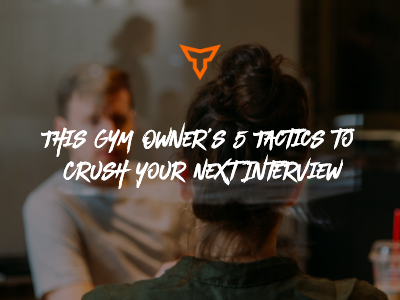
This Gym Owner's 5 Tactics to Crush Your Next Interview
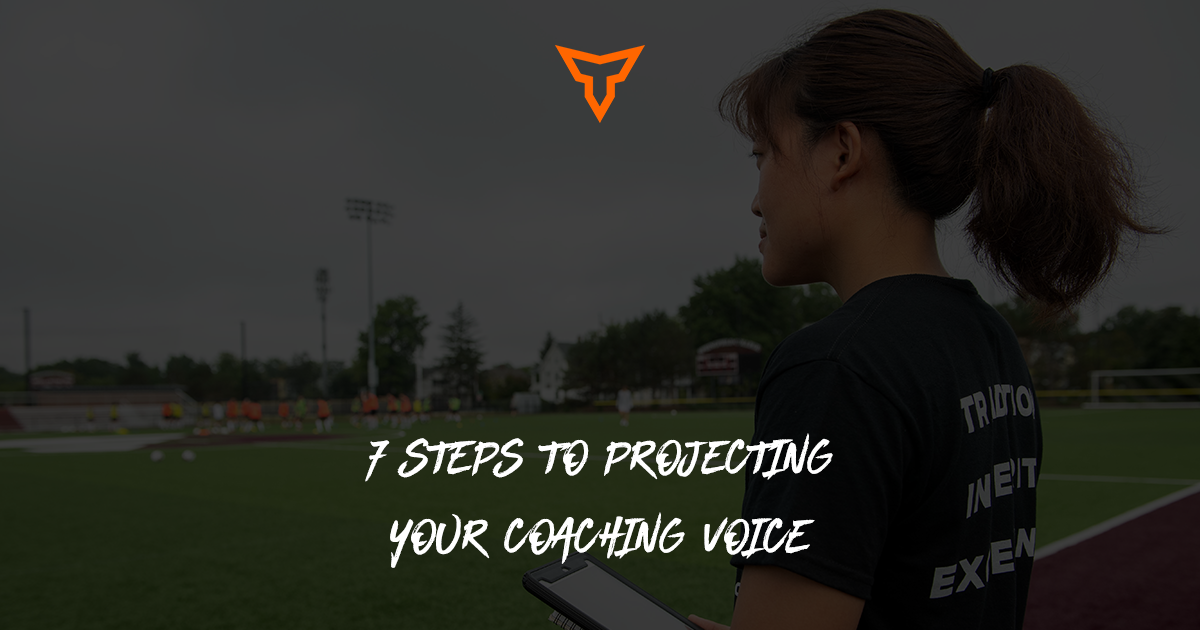
From the GA's Desk: 7 Steps to Projecting Your Coaching Voice
